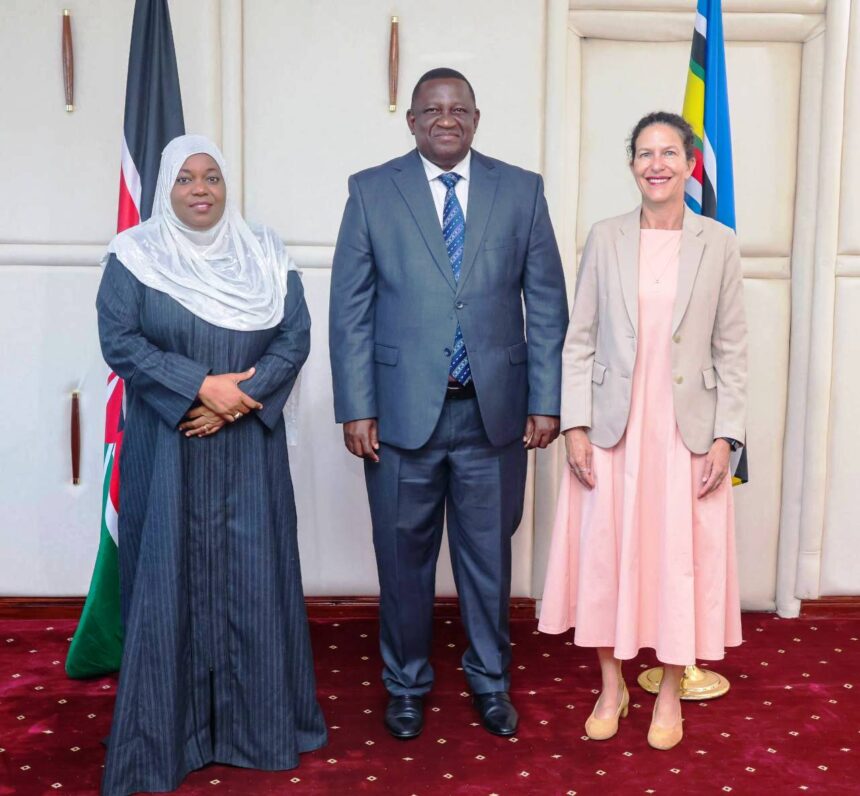The national government is actively promoting industrialization in counties to boost trade, create employment opportunities, and alleviate poverty.
Cabinet Secretary for Investments, Trade, and Industry, Salim Mvurya, announced the launch of an ambitious industrial initiative under the County Aggregation and Industrial Park (CAIP) program. This project focuses on fostering agro-industries to enhance manufacturing, attract investments, and improve living standards across the 47 counties.
According to CS Mvurya, industrialization plays a central role in the Bottom-Up Economic Transformation Agenda (BETA). This strategy emphasizes inclusive growth by empowering local communities, generating jobs, and increasing value addition across the national value chain.
“Industrialization is a cornerstone of our economic transformation agenda and diversification program,” he said, reaffirming the Ministry’s commitment to driving economic growth through industrial development.
Key Goals of CAIP
The CAIP initiative aims to:
- Create jobs and attract both public and private investments to counties.
- Serve as a catalyst for transforming local economies.
- Boost manufacturing, which is a significant component of the program.
“My ministry actively promotes, facilitates, and incentivizes investment in the manufacturing sector while ensuring a stable macroeconomic environment,” Mvurya stated during a meeting with UNIDO Representative Tally Einav and Kwale Governor Fatuma Achani at the Kwale County Headquarters.
UNIDO Collaboration
The United Nations Industrial Development Organization (UNIDO) has pledged support for Kenya’s industrialization agenda. UNIDO, headquartered in Vienna, Austria, focuses on industrial development for poverty reduction, inclusive globalization, and environmental sustainability.
Tally Einav, overseeing UNIDO’s projects in Kenya and neighboring countries, emphasized the importance of aligning industrial growth with global standards for sustainability and resilience. Since 1981, Kenya has collaborated with UNIDO on over 100 projects addressing economic, policy, institutional, and enterprise challenges.
CS Mvurya highlighted plans to integrate the CAIP initiative with the county partnership program, an innovative approach to accelerating inclusive and sustainable industrial development. “UNIDO’s technical assistance, capacity building, and investment facilitation will be instrumental in ensuring the success of county industrial parks,” he noted.
Progress in Kwale County
Governor Fatuma Achani provided an update on the construction of Kwale County’s Sh75 million Industrial Park. Significant progress has been made in identifying unique value chains such as seaweed farming, food processing, and eco-tourism, which have the potential to evolve into bankable projects.
“Our focus is on attracting investments that not only spur industrial growth but also prioritize climate resilience and sustainability for our communities,” Achani said. She reiterated the county’s commitment to providing essential infrastructure, including roads, drainage, and electricity, to support the industrial park’s success.
Transforming Local Economies
Governor Achani emphasized the importance of industrial parks as key drivers of growth and economic development. “Industrial parks attract businesses, fuel job creation, enhance competitiveness, and foster sustainable economic growth,” she stated.
With partnerships and alignment with global best practices, stakeholders are confident that the CAIP initiative will unlock transformative opportunities, paving the way for robust economic development across Kenya’s counties.



